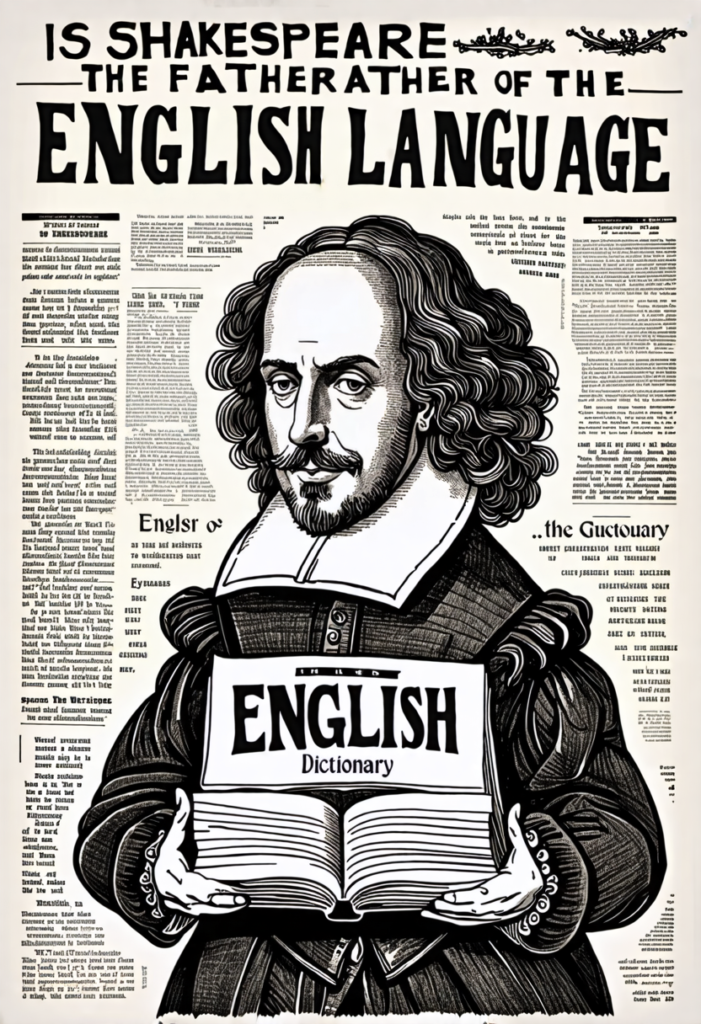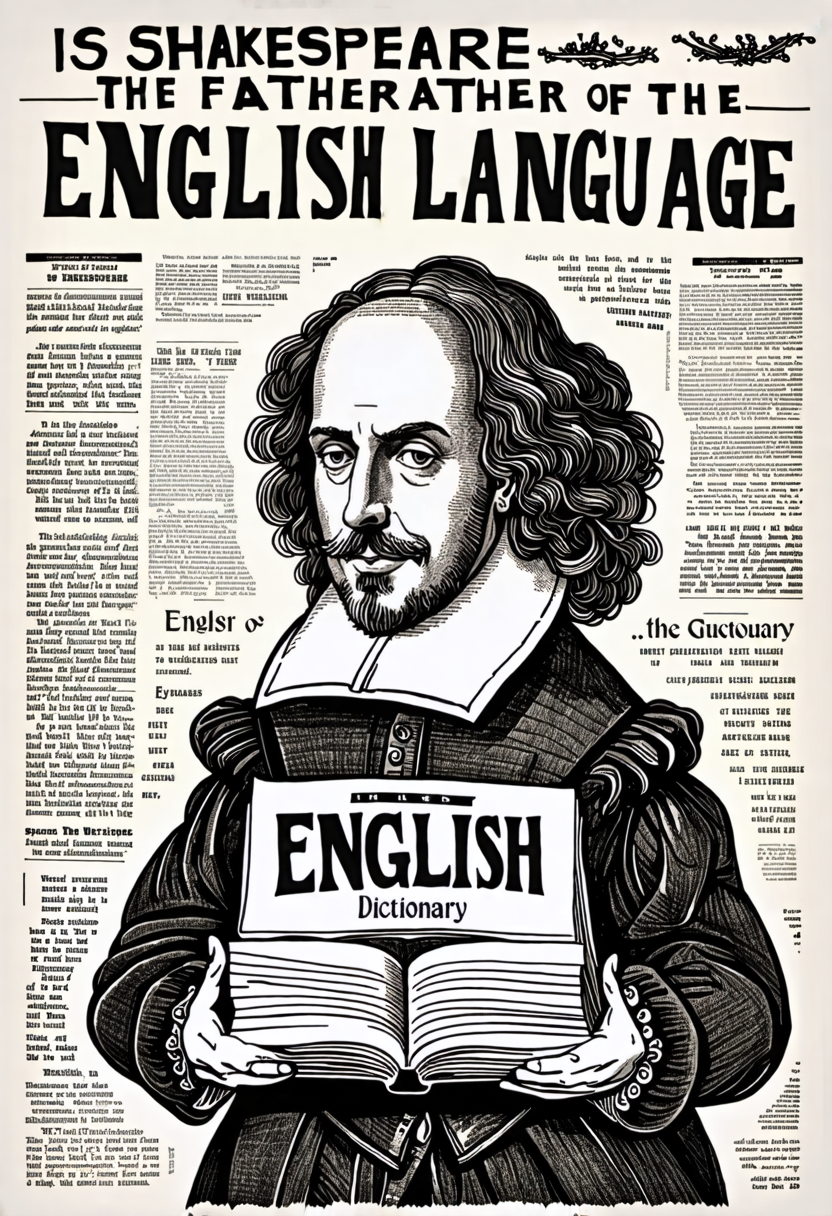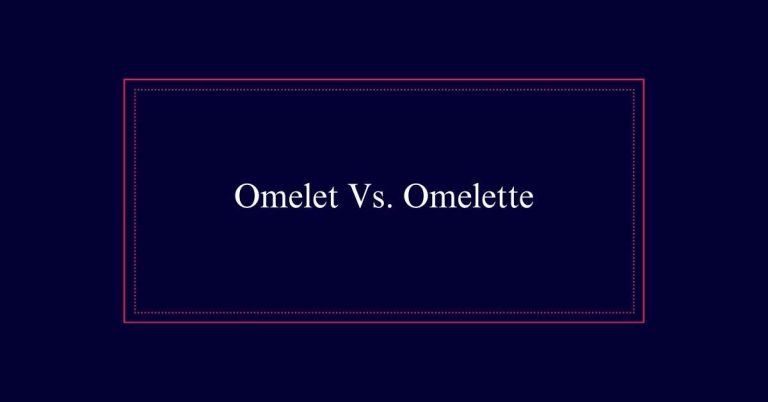Is Shakespeare the Father of the English Language?
William Shakespeare is often hailed as the father of the English language due to his vast contributions. He coined and popularized many words and phrases that are still in use today. Innovations like ‘gnarled,’ ‘arouse,’ and ‘laughingstock’ showcase his influence. His creative use of onomatopoeia, as seen with ‘bow-wow’ in The Tempest, enriched the auditory experience of his plays.
Phrases such as ‘eaten out of house and home’ illustrate his knack for vivid language. Shakespeare’s works greatly evolved English expression and communication.
Shakespeare’s Linguistic Innovations
Shakespeare’s linguistic innovations have left an indelible mark on the English language. He introduced many words and phrases that we still use today. For instance, the word ‘gnarled,’ which appears in Measure for Measure, was his creative alteration of the then-common ‘knurled.’
Similarly, in The Merry Wives of Windsor, he popularized the term ‘laughingstock,’ though it existed prior. Shakespeare’s use of onomatopoeia, like ‘bow-wow’ from The Tempest, showcases his inventive use of sound to create words.
His ability to coin new terms or adapt existing ones has enriched the language significantly. This creativity has influenced English, making his works timeless and his impact enduring. His linguistic legacy continues to shape our expression and communication.
The Origin of Arouse
Although the term ‘rouse’ was commonly used before, Shakespeare’s works, particularly Henry VI, Part 2 and Hamlet, introduced and popularized the variant ‘arouse.’ The shift from ‘rouse’ to ‘arouse’ in these plays showcased Shakespeare’s influence on the English language.
‘Arouse’ means to wake up or stir into action. By incorporating this variant, Shakespeare enriched the vocabulary available to English speakers. His linguistic creativity allowed for more nuanced expressions, making his plays resonate deeply with audiences.
The introduction of ‘arouse’ is a reflection of Shakespeare’s role in evolving the language. His ability to innovate with words helped shape modern English, leaving a lasting impact that continues to be felt today.

Bow-wow and Onomatopoeia
In The Tempest, Shakespeare’s use of onomatopoeia is exemplified by the phrase ‘Hark, hark! Bow-wow.’ Ariel’s speech in this line effectively conveys the essence of sounds through words. Shakespeare’s talent for onomatopoeia enhances the auditory experience of his plays, making the scenes more vivid and engaging. Onomatopoeia, where words mimic sounds, is a technique Shakespeare employed to great effect.
| Sound | Word | Context |
|---|---|---|
| Dog’s bark | Bow-wow | Ariel’s song in *The Tempest* |
| Bells | Ding-dong | Ariel’s passage |
| Thunder | Rumble | *King Lear* |
| Wind | Whistle | *Hamlet* |
| Birds | Tweet | *The Winter’s Tale* |
Shakespeare’s innovative use of sound words helped solidify his reputation as a master of the English language.
Eaten Out of House and Home
The phrase ‘eaten out of house and home,’ famously used in Henry IV, Part 2, illustrates the concept of depleting someone’s resources through excessive consumption. Mistress Quickly utters this line to describe Falstaff’s voracious eating habits, which have left her destitute.
This expression vividly captures the idea of someone consuming so much that it exhausts the provider’s means. Though Shakespeare popularized the phrase, it first appeared in Thomas Cooper’s Thesaurus Linguae Romanae Britannicae almost twenty years earlier. Cooper defined it as wasting and consuming substance, money, etc.
Shakespeare’s usage cemented the phrase in the English lexicon, showcasing his knack for bringing existing expressions into common use and enriching the language.
Gnarled: A Word Evolution
How did the word ‘gnarled’ evolve from its predecessor ‘knurled’ during Shakespeare’s time?
In Shakespeare’s era, ‘knurled’ was commonly used to describe something bumpy or rough. However, in his play Measure for Measure, Shakespeare adapted the term to ‘gnarled.’
This subtle change wasn’t just cosmetic; it added a new layer of texture to the language. ‘Gnarled’ came to evoke not just physical roughness but also a sense of age and wear.
This evolution showcases Shakespeare’s innovative approach to language. By altering existing words, he enriched the English vocabulary.
Today, ‘gnarled’ is a familiar adjective, illustrating Shakespeare’s lasting impact on the way we describe the world around us.
Popularizing Laughingstock
Shakespeare’s linguistic creativity didn’t stop at altering words; he also popularized existing expressions such as ‘laughingstock.’ In The Merry Wives of Windsor, a character expresses a fear of becoming a ‘laughing-stock’ to others. Although Shakespeare did not coin the term, his usage brought it into wider public awareness.
The phrase, which means a person subjected to ridicule, dates back to the 16th century and appears in other works from that period. However, Shakespeare’s play, published in 1602, played a significant role in cementing its place in the English language. Through his plays, Shakespeare had a remarkable ability to breathe life into phrases, ensuring their longevity and relevance in everyday speech.
Shakespeare’s Impact on Modern English
Frequently hailed as a linguistic pioneer, Shakespeare profoundly shaped modern English. His influence is evident in the way we speak and write today. Here are four key areas where his impact is most noticeable:
- Vocabulary Expansion: Shakespeare introduced many new words and phrases, some of which are still in use.
- Onomatopoeia: He creatively used sounds to craft words that vividly depicted actions or objects, enhancing descriptive writing.
- Idiomatic Expressions: Phrases like ‘eaten out of house and home’ became part of everyday language due to his works.
- Wordplay and Puns: His clever manipulation of words added layers of meaning, enriching the English language.
Shakespeare’s contributions continue to resonate, highlighting his lasting legacy.
The Legacy of Shakespeare’s Language
The legacy of Shakespeare’s language endures in the richness and versatility of modern English. His inventive use of words and phrases has left an indelible mark. Terms like ‘arouse’ and ‘gnarled’ showcase his ability to adapt and create language.
Shakespeare’s skill in onomatopoeia, with examples like ‘bow-wow’ from *The Tempest*, highlights his creativity. Phrases such as ‘eaten out of house and home’ and ‘laughingstock’ illustrate his talent for making expressions memorable.
Though he did not always invent these terms, his works popularized many. Shakespeare’s influence extends beyond his era, enriching the English language and ensuring his contributions remain relevant and celebrated today.
Frequently Asked Questions
What Other Words Did Shakespeare Invent?
Shakespeare invented many words still in use today. Examples include ‘bedazzled,’ ‘swagger,’ ‘lonely,’ ‘critic,’ and ‘gloomy.’ His creative language contributions have greatly shaped modern English, adding depth and nuance to our vocabulary.
How Many Plays Did Shakespeare Write?
William Shakespeare wrote 38 plays. His works include tragedies, comedies, and histories. These plays have had a profound impact on English literature and drama, showcasing his unmatched creativity and mastery of the language.
Did Shakespeare’s Works Influence Other Languages?
Shakespeare’s works had a significant influence on other languages. His plays and phrases have been translated widely, enriching global literature. Many non-English writers adopted his themes, characters, and stylistic techniques, showcasing his universal impact.
What Were Shakespeare’s Most Famous Quotes?
Shakespeare’s most famous quotes include “To be or not to be” from Hamlet, “All the world’s a stage” from As You Like It, and “A rose by any other name” from Romeo and Juliet.
How Has Shakespeare’s Language Been Adapted in Modern Times?
Shakespeare’s language has been adapted in modern times through contemporary translations, performances, and educational curricula. His phrases and words are integrated into everyday speech, ensuring his linguistic contributions remain relevant and influential in today’s English language.








